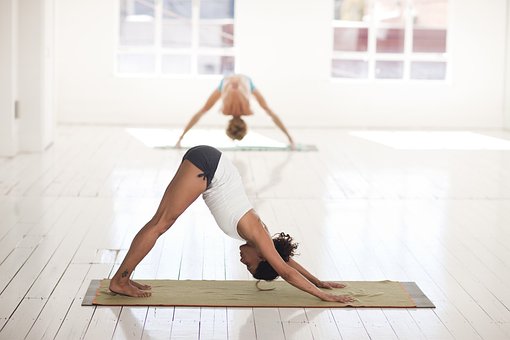
Are you just starting with tai chi or have you been doing it for a while? Either way, you may question how long and how frequent your practice should be.
Honestly — there’s no one-size-fits-all answer.
A few elements can be utilized to figure out the optimum duration and quantity of tai chi sessions. We demonstrate the best ways of incorporating tai chi into your wellness program.
What is Tai Chi?
Tai Chi is a traditional Chinese fighting style that isn’t only helpful for physical fitness, but it’s also invigorating for the intellect and soul. This type of exercise requires movements that are very methodical, gradual, and gentle, which help to build strength, coordination, and stamina.
This martial art stands out in its combination of focus on breath and state of mind, similar to yoga but more appropriate for the elderly because it strengthens balance even when aging. With Tai Chi, one is encouraged to concentrate on their breathing, as well as to bring their awareness to the inner world of their emotional and psychological states. This is one of the aspects which make Tai Chi an “inner” style of martial arts.
In Chinese medicinal practices, the concept of “chi” (at times referred to as qi) is an energy source responsible for sustaining life. Tai Chi enables you to use the energy of the universe to revitalize and cure yourself. The integration of breathing techniques, sequences of regulated motions, and the meditative qualities of Tai Chi creates an effective physical activity that is optimal for elderly people looking to stay agile and vibrant with age. In China, it is commonplace to see elderly people exercising regularly by doing Tai Chi, with positive results!
Styles of Tai Chi Good for Seniors
No matter what style you go for, Tai Chi is a very mild form of exercise. There are many different styles of Tai Chi, but the four primary styles are listed below:
- Chen – This is one of the oldest styles of Tai Chi. It is more focused on Tai Chi as a martial art and a method of self-defense. It is more intense than some other styles, but still very gentle and a good option for seniors who want a more invigorating workout that is also practical as a martial art.
- Sun – In contrast, Sun Tai Chi is one of the newest styles. This style is very smooth, graceful, and high-stance (in comparison to the deep, low stances of other styles). Dr. Paul Lam developed a special Sun Tai Chi style for people with arthritis. This specialized version is less taxing on the joints and was developed to spur a healing response for practitioners.
- Yang – This Tai Chi style is one of the more popular and easily accessible styles when it comes to finding classes and learning materials. It is characterized by movements that are flowing and gentle which are great for seniors who want a low-impact workout.
- Wu – The Wu Tai Chi style is very similar to the Yang style. The primary difference is that the movements with this style are smaller and less dramatic than those in the Yang style.
The Benefits of Tai Chi for Seniors
The benefits of Tai Chi are profound. Practicing Tai Chi provides various mental, physical, and spiritual advantages, which can be seen in an increased life span and prolonged health span in an older person’s life.
Like jogging, yoga, and other forms of exercise, Tai Chi offers innumerable benefits for life expectancy and quality of life and is a mild exercise that is attractive to both senior citizens and young people.
Some of the numerous benefits of Tai Chi include:
- A healthier cardiovascular system – Tai Chi has incredible benefits for the cardiovascular system. Even though Tai Chi isn’t an intense aerobic exercise, the relaxation and breathing aspects of the martial art lend themselves to lowering blood pressure, reducing inflammation in the body, lowering triglyceride levels, and increasing levels of “good” cholesterol. Individuals who have had heart attacks in the past can practice Tai Chi safely while also still strengthening their cardiovascular system.
- Improved sleep – Tai Chi can have a significant impact on sleep, especially for seniors. Whereas some insomnia medications may cause grogginess or other unpleasant side effects, Tai Chi offers the benefit of relieving insomnia while also boosting energy during the daytime hours.
- Better posture – Having good posture can make a big difference when it comes to overall health, aging gracefully, and resisting falls. Tai Chi helps seniors improve and maintain good posture by gently strengthening and toning muscles that are responsible for keeping you standing up straight. A good posture can also improve your ability to breathe freely, which can alone have wonderful benefits.
- Increased immunity – Although this one might come as a surprise for some people, a regular Tai Chi practice can actually help boost immunity! The details of why Tai Chi increases immunity aren’t super well studied, but there have nonetheless been studies proving that older adults who practiced Tai Chi regularly demonstrated a better immune response after receiving both Shingles and flu vaccines. Immunity is extremely important for seniors, so any natural remedy for improved immunity is worth trying.
- Chronic pain reduction – Tai Chi has been shown to be useful for reducing chronic pain in various parts of the body, which is something that nearly 85% of all seniors experience. Studies have proven that Tai Chi can have considerable effects in reducing the pain of fibromyalgia, arthritis, and tension headaches even when only practiced for one hour twice a week.
- Helps treat diabetes – Though this benefit is a bit surprising, Tai Chi can actually have an effect on reducing the symptoms of type 2 diabetes. Tai Chi reduces blood glucose levels and inflammation, as well as improves the immune response of elderly individuals with this type of diabetes. Plus, regular Tai Chi practice has helped people with type 2 diabetes reduce their food cravings and successfully manage a healthy diet more effectively, thus improving their mood, overall health, and a general sense of well-being.
- Social benefits – Seniors who take up a Tai Chi practice often find themselves in the midst of a new and lively social group of other active seniors and even other younger adults who share a common interest. Tai Chi is often done in groups, with people joining the group as part of a class or as a kind of club. This can be a great way to reinvigorate a social life that’s gone stale, and it can also be a fun new hobby for seniors looking for an activity that is as social as it is personal and individualized.
Why are Tai Chi Routines Important?
Doing tai chi regularly is essential for forming a routine, just as it is for any other type of mental or physical exercise. Establishing a regular sequence of actions can make it easier for you to be kind and forgiving to yourself while adapting to something unfamiliar. Don’t let the gradual, reflective movements of tai chi trick you; maintaining the equilibrium between mind and body requires immense attentiveness.
Tai chi’s…
• Flowing • Purposeful and • Low impact
Exercises known as forms require a certain level of strength and coordination, but they can be done by people of all ages and physical capabilities.
Centered on aligning your…
• Mind • Body and • Energy
Incorporating tai chi into your regular health and wellness schedule may provide you with numerous advantages.
Tai chi’s movements aim to elevate and harmonize the qi within your body.
When your energy is balanced, your mental and physical health will be in perfect harmony.
Over time, regular energy work may help you access your center, helping you feel more grounded and less reactive:
• While driving • On the job or • In other anxiety-inducing scenarios.
How Often Should You Practice Tai Chi?
The frequency with which someone should perform tai chi can depend on their individual aptitude and the extent of their experience in the exercise. This is due to the fact that tai chi is an activity based on manipulating one’s personal energy. The energy within us is in constant flux, adapting to the conditions we find ourselves in. Therefore, someone may feel the necessity to clear their energy more or less than someone else.
Unless you are hindered by physical incapability, you can do tai chi as much as you want. The more you train, the faster you will become proficient in the poses.
Speaking with a physician before beginning a fresh workout regimen is recommended, particularly if one suffers from any medical ailments or agony.
How Often Should Beginners Practice Tai Chi?
If you are just beginning to practice tai chi as an energy exercise, it is recommended to do two brief classes each week. Take time to give your mind and body the opportunity to adjust to the hard work you are undertaking. The concentration can be intense so it is important to give your body time to become accustomed to what it is doing.
Listen to your body.
If you feel…
• Fatigue • Lethargic or • Flu-like symptoms
You may be feeling Myunghyun, a sensation that results from the release of pent-up energies.
Allow yourself to rest until you feel rejuvenated again. The indications should vanish and your vitality should come back to regular once your vitality is ready to move uninhibitedly. If you are not feeling better within a day, it is advised that you speak to a physician before going back to school.
Alter your tai chi regimen appropriately and as much as you deem necessary.
How Long Should Each Beginner’s Tai Chi Session Be?
Tai chi classes for novices can last as long as you are comfortable with. If you are inexperienced in this sort of thing, getting in touch with your body and sensing your energy may require some practice. Do not hesitate to have pauses or halt your tai chi exercise early if it seems reasonable.
It could be beneficial to you to set aside 20 to 30 minutes at a time when working on postures, as this may enable you to become immersed in the activity. It is not expected that you experience any acute agony when carrying out tai chi.
Most people can engage in low-impact physical activity for twenty minutes every day without risk. But let your comfort level be your guide.
It is essential to concentrate on what you are doing in your rehearsals, regardless of how long it takes.
How Often Should Those More Advanced in Tai Chi Practice?
For those who are more experienced in tai chi, it should be simpler to carry out the practice regularly. It’s just as important to restore your energy levels as it is to provide your body with nutrition, so you should do tai chi as many times as you’d like.
Some folks have tai chi exercises as part of their daily regimen. But remember, your body is the boss.
There is no definitive lower or upper limit, merely whatever you consider to be appropriate.
How Long Should Each Advanced Tai Chi Session Be?
Generally, 30 to 60 minutes is long enough to:
• Draw on your enthusiasm • Start your work and • Finish the forms
Some experienced tai chi practitioners can tap into their power almost instantly whereas others may take longer than five minutes to do so.
The length of your session may vary depending on:
• What you want to achieve • The exercises you do to prepare and • The particular form of tai chi
The amount of concentration you are able to give to the exercise will determine how long an advanced tai chi session should last.
FAQs Regarding How Often to Practice Tai Chi
When Is the Best Time of Day to Practice Tai Chi?
The most beneficial period for performing tai chi is when one is in a proficient mental and physical state and able to devote their full focus to their body with the same intensity that one might practice meditation.
You may have come across people executing tai chi early in the day. It is often simpler to settle one’s thoughts and concentrate before the hectic nature of the day sets in.
Forming a tai chi program involves repeating the same motions and being consistent with them.
Getting yourself in an optimal mental and physical state can help you utilize your strength to reach ideal outcomes, no matter what hour you opt to do tai chi.
Can You Do Tai Chi More Than Once a Day?
You are able to do tai chi as much as you want, including more than once a day. If you think tai chi is a suitable approach to…
• Rise and shine • Ease your body into moving and • Prep yourself for the day ahead…then don’t hesitate to jump in a morning session.
Does your energy need a tai chi cleansing for lunch?
Go for it.
Would doing slow movements of tai chi be an enjoyable way to relax and unwind at the end of a hectic day?
The decision is yours, focus on your emotions.
Research has found that practicing tai chi is a great way to improve:
• Concentration • Respiration • Synchronization and • Unwinding
The everyday grind can be quite draining due to external sources of pressure and strain, reducing your energy and impacting your overall health. Make it a point to set aside a moment to clear your head and replenish your strength when you feel able to do so.














